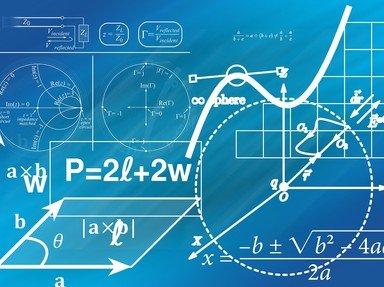Quiz Answer Key and Fun Facts
1. How many square roots does a positive real number have?
2. Let A = (the square root of 8). Which of the following equals the square of A?
3. The square root of 18 simplifies to what?
4. Let A = the square root of 6, B = the square root of 10, and C = the square root of 15. Which of the following is equal to the product ABC?
5. (The square root of 12) divided by (the square root of 3) equals
6. The legs of a right triangle have lengths (the square root of 5) and (the square root of 12). What is the length of the hypotenuse?
7. Let A = 3 + (the square root of 7) and let B = 3 - (the square root of 7). Then the product AB equals
8. Which of the following is equal to the reciprocal of (4 + (the square root of 15))?
9. Let a = 1 + (the square root of 3). Then a^2 =
10. You can show that (2 + (the square root of 5))^2 = 9 + 4 * (the square root of 5).
So my final question is this: What is the square root of (9 + 4 * (the square root of 5)) ?
Source: Author
rodney_indy
This quiz was reviewed by FunTrivia editor
crisw before going online.
Any errors found in FunTrivia content are routinely corrected through our feedback system.
